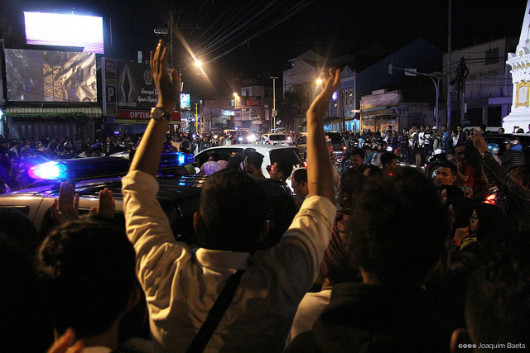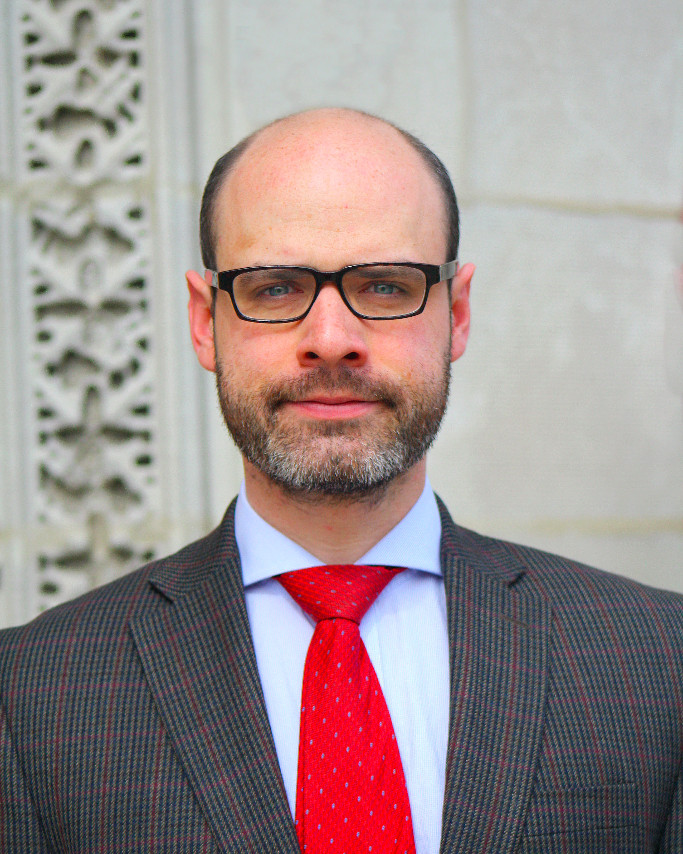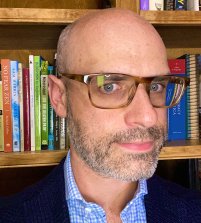Rethinking Blasphemy in Indonesia and the Fiqh Tradition
World media have reported on the blasphemy conviction of Basuki Tjahaja Purnama, the Christian governor of Jakarta known as Ahok, with familiar oppositions of liberal-democratic norms and hardline Islam
 World media have reported on the blasphemy conviction of Basuki Tjahaja Purnama, the Christian governor of Jakarta known as Ahok, with familiar oppositions of liberal-democratic norms and hardline Islam. Fears of the sharīʿa transgressing into the public sphere have accompanied calls for a “moderate” Islam, the latter claimed by Joko Widodo, the president of Indonesia.
World media have reported on the blasphemy conviction of Basuki Tjahaja Purnama, the Christian governor of Jakarta known as Ahok, with familiar oppositions of liberal-democratic norms and hardline Islam. Fears of the sharīʿa transgressing into the public sphere have accompanied calls for a “moderate” Islam, the latter claimed by Joko Widodo, the president of Indonesia.
However, I suggest that what is at stake in this case, and many like it, is not how Islamic or other traditions can moderate but how the modern state polices religious discourse through its claims to protecting those traditions. To examine the prosecution of blasphemy is to consider the shape of the public sphere itself rather than how religion intrudes into it.
To take up this kind of investigation into apparent contraventions of religious freedom—as in the work of Saba Mahmood, Elizabeth Hurd, and others—is not to decenter the real precarity religious minorities face in many contexts. It is rather to consider the modern legal and political forms that shape these situations, which do not have their origins in fiqh, Islamic jurisprudence.
The blasphemy case against Ahok concerned statements that his opponents were misinterpreting the Qurʾān in urging fellow Muslims not to vote for a Christian. Such allegations of error could not have occasioned these kinds of charges within the fiqh tradition. Blasphemy, as outward sign of apostasy (ridda) or heresy (zandaqa), pertained to specific and sustained slanders of the prophet Muḥammad or repudiation of the divine. Mainstream jurists such as Muḥammad ibn Idrīs al-Shāfiʿī (d. 820), the founder of the legal tradition adhered to in Southeast Asia, argued these charges could only apply to inveterate persistence in targeted flouting of tradition.
More important than the narrow scope of the capital crime of disowning one’s religion is the understanding of difference in premodern fiqh. The ethics of dispute (adab alikhtilāf) emerged in the madrasas, mosques, and study circles in which Muslim ʿulamāʾ and students debated the interpretation of the law. The acceptance of difference of opinion in good faith often connected to the prophetic statement that in rigorous interpretation, a wrong opinion merits once, and a correct opinion twice. Error, in this view, occasions divine mercy. This is not to suggest orthodoxy was not a matter of ultimate concern, but to present ways of disputing interpretation from the ground of shared ethics rather than a hermeneutics of suspicion.
Similarly, while Muslim rule did not promote equal citizenship to people of all religions, it left non-Muslims to constitute their own legal and political forms. The supremacy of Islamic law did not imply its comprehensive application to those protected as dhimmīs. Where difference among Muslims did not need to occasion bad faith, difference between Muslims and non-Muslims did not require intervention.
Europeans who colonized Indonesia from the 17th century, however, connected religious difference to state sovereignty in very different ways. Colonial powers often justified their rule through the protection of religious minorities, an imperative strengthened in postcolonial law codes. In 1965, Indonesia defined blasphemy as the promotion of any aberrant doctrine concerning any of the recognized faiths to which all citizens belong, positioning the state both as the arbiter of orthodoxy and as the guarantor of interreligious harmony. The transition to democracy in 1998 did not diminish the coercive powers of the state or circumscribe its role as adjudicator of difference; rather, it empowered religious civil-society groups to seek out heresy on their own and submit it to a judicial purview that far exceeds the scope of traditional evaluation of religious dissonance and penalizes dissent.
The point in examining these transformations is not to valorize the past as more tolerant than the present but to question the characterization of Islam as the framework for modern anxieties of difference. Searching out and demanding a “moderate Islam” does nothing to help question the bases for politicized religion in contexts such as Indonesia and elsewhere. Appreciating other ways to abide difference can offer perspective to those of us who want to continue to question that politicization and its relationship to state power.
Resources
- Asad, Talal, et al. Is Critique Secular: Blasphemy, Injury, and Free Speech. Townsend Center for the Humanities, 2009.
- Emont, Jon. “Jakarta’s Christian governor sentenced to prison in blasphemy case.” Washington Post. May 9, 2017.
- Hefner, Robert W. “Indonesia: Shari‘a Politics and Democratic Transition.” In Robert W. Hefner, ed., Shari‘a Politics: Islamic Law and Society in the Modern World. Indiana University Press, 2011.
- Hurd, Elizabeth Shakman. Beyond Religious Freedom: The New Global Politics of Religion. Princeton University Press, 2015.
- “Indonesia’s blasphemy laws: Why the use of the laws is on the rise.” The Economist. November 24, 2016.
- Mahmood, Saba. Religious Difference in a Secular Age: A Minority Report. Princeton University Press, 2016.
Image: Vigil for Ahok, the governor of Jakarta found guilty of blasphemy, held in Yogyakarta, Indonesia, on May 10, 2017. People gathered to show solidarity with Ahok, protest the verdict, and sing songs of peace and unity. | Photo Credit: Joaquim Baeta/Flickr via Compfight (cc)
 Author, Timothy Gutmann, is a PhD candidate in Islamic Studies at the University of Chicago Divinity School. His dissertation is titled “Conscripting Tradition: Islam, Confucianism, Modernity.” Author, Timothy Gutmann, is a PhD candidate in Islamic Studies at the University of Chicago Divinity School. His dissertation is titled “Conscripting Tradition: Islam, Confucianism, Modernity.” |
Sightings is edited by Brett Colasacco, a PhD candidate in Religion, Literature, and Visual Culture at the University of Chicago Divinity School. Subscribe here to receive Sightings in your inbox twice a week. You can also follow us on Facebook and Twitter.


